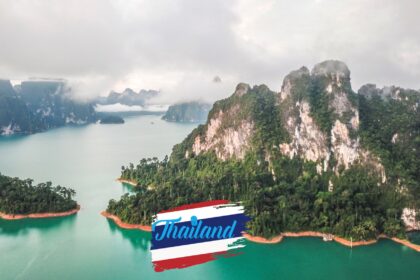Introduction
North Africa, encompassing countries such as Morocco, Algeria, Tunisia, Libya, and Egypt, is a region rich in history, culture, and diverse landscapes. As a traveler exploring this enchanting part of the world, it is essential to be aware of and practice travel etiquette to ensure a respectful and enjoyable experience. This article aims to provide insights into the cultural norms and customs prevalent in North African countries, offering guidance on how to navigate these unique destinations with sensitivity and respect.
Dress Modestly:
In North African countries, modesty in dress is highly valued, especially in more conservative areas. While major cities may be more liberal, it is advisable for both men and women to dress modestly when visiting religious sites or rural areas. Women, in particular, should consider covering their shoulders and knees, and it’s recommended to carry a scarf for covering the head if needed.
Greetings and Gestures:
Greetings play a significant role in North African culture. It is customary to exchange pleasantries before engaging in conversation. Handshakes are a common form of greeting, but it’s essential to note that, in some regions, the opposite sex might prefer not to shake hands. Always wait for a woman to initiate a handshake. Additionally, showing respect to elders is crucial, and a simple greeting or nod of acknowledgment is appreciated.
Respect for Religion:
Islam is the predominant religion in North Africa, and it greatly influences daily life. When entering religious sites, such as mosques, it is important to dress modestly and remove your shoes. Non-Muslims are generally not allowed inside mosques during prayer times. During the holy month of Ramadan, be considerate and avoid eating, drinking, or smoking in public during daylight hours, especially in more conservative areas.
READ ALSO: Where to Go in Africa: Top 5 Countries for an Unforgettable Experience
Hospitality and Tea Culture:
North Africans are known for their warm hospitality. If invited to someone’s home, it is customary to bring a small gift, such as sweets or flowers. When offered tea, a common social ritual in the region, it is polite to accept and engage in conversation. Refusing tea may be considered impolite, so it’s best to savor the moment and appreciate the gesture.
Language Considerations:
While Arabic is widely spoken, French is also commonly used, particularly in former French colonies like Morocco and Tunisia. Learning a few basic Arabic phrases or expressions can go a long way in establishing rapport with locals. However, English is not as prevalent, especially in rural areas, so having a translation app or a basic understanding of the local language is beneficial.
Bargaining in Souks:
Exploring the vibrant markets, or souks, is a must in North Africa. Bargaining is an integral part of the shopping experience, but it should be approached with respect. Start with a friendly conversation, be patient, and always maintain a good sense of humor. Remember that haggling is expected, but it’s crucial to find a fair and mutually agreeable price.
Photography Etiquette:

While the landscapes and architecture in North Africa are undoubtedly picturesque, it’s essential to respect local customs regarding photography. Always ask for permission before taking photos of people, especially in more rural areas. In some instances, locals may request a small fee for photographs, which should be respected.
Traveling through North Africa offers a captivating journey through history, culture, and diverse landscapes. By embracing and respecting the local customs and etiquette, travelers can forge meaningful connections with the people of the Maghreb region. From dressing modestly to engaging in the art of negotiation in bustling souks, adhering to these cultural norms ensures a more enriching and enjoyable travel experience in this fascinating part of the world.
Frequently asked questions
Q: What is the best time to visit North African countries?
A: The best time to visit North African countries is typically during the spring (March to May) and fall (September to November) when temperatures are moderate, and the weather is more comfortable for exploring various attractions. However, it’s essential to consider specific regional climates and events.
Q: Is it safe to travel to North Africa?
A: Generally, North African countries are safe for tourists, but it’s crucial to stay informed about the current situation in each specific country. Exercise common safety precautions, be aware of travel advisories, and respect local customs to ensure a safe and enjoyable trip.
Q: What languages are spoken in North African countries?
A: Arabic is widely spoken throughout the region, with variations in dialects. Additionally, French is commonly used in countries like Morocco, Algeria, and Tunisia due to historical colonial influences. English may not be as prevalent, especially in rural areas, but many people in tourist areas understand basic English.
Q: What is the currency used in North African countries?
A: The currency varies by country. For example, Moroccan Dirham (MAD) is used in Morocco, Algerian Dinar (DZD) in Algeria, Tunisian Dinar (TND) in Tunisia, Libyan Dinar (LYD) in Libya, and Egyptian Pound (EGP) in Egypt. It’s advisable to exchange currency at banks or authorized exchange offices.
Q: How should I dress when visiting North African countries?
A: Dress modestly, especially when visiting religious sites or rural areas. For both men and women, it’s recommended to cover shoulders and knees. Carrying a scarf for women to cover their head is advisable. In urban areas, casual Western clothing is generally acceptable.
Q: Can I drink tap water in North Africa?
A: It’s advisable to drink bottled or purified water to avoid the risk of waterborne illnesses. In most urban areas, bottled water is widely available and affordable. Additionally, avoid consuming raw or uncooked foods that may have been washed in tap water.
Q: How do I navigate the local transportation in North Africa?
A: Public transportation options vary by country but commonly include buses, trains, and taxis. In major cities, you may find ride-sharing apps. It’s essential to familiarize yourself with local transportation systems and, if needed, hire reputable guides or drivers for a more comfortable experience.
Q: Is it customary to tip in North African countries?
A: Tipping is generally appreciated. In restaurants, a tip of around 10% is customary if service is not included. Tipping tour guides, drivers, and hotel staff is also common. However, it’s advisable to check local customs, as tipping practices may vary between countries.
Q: What cultural considerations should I be aware of in North Africa?
A: Respect for religion, particularly Islam, is crucial. Dress modestly, especially when entering religious sites. During Ramadan, be considerate of fasting hours. Greetings are important, and it’s customary to exchange pleasantries before engaging in conversation. Always ask for permission before taking photographs, especially of locals.
Q: Can I engage in bargaining while shopping in North African markets?
A: Yes, bargaining is expected in markets, or souks. Approach it with respect, start with a friendly conversation, and be patient. While negotiating, maintain a good sense of humor. Finding a fair and mutually agreeable price is part of the cultural experience
Conclusion
In conclusion, navigating the diverse and culturally rich North African countries requires a combination of respect, awareness, and an open mind. The region’s history, traditions, and customs contribute to a unique and enchanting travel experience. By adhering to travel etiquette, from dressing modestly to embracing local greetings, travelers can forge meaningful connections and create lasting memories in this captivating part of the world. Whether exploring the bustling markets, historical sites, or enjoying the warm hospitality, respecting the cultural nuances ensures not only a safe journey but also an enriching and unforgettable adventure through the vibrant landscapes of North Africa. So, pack your curiosity, be open to new experiences, and savor the beauty of this remarkable region while fostering mutual respect and understanding.
In another related article, The Ultimate South Africa Travel Guide: A Journey through Diversity







